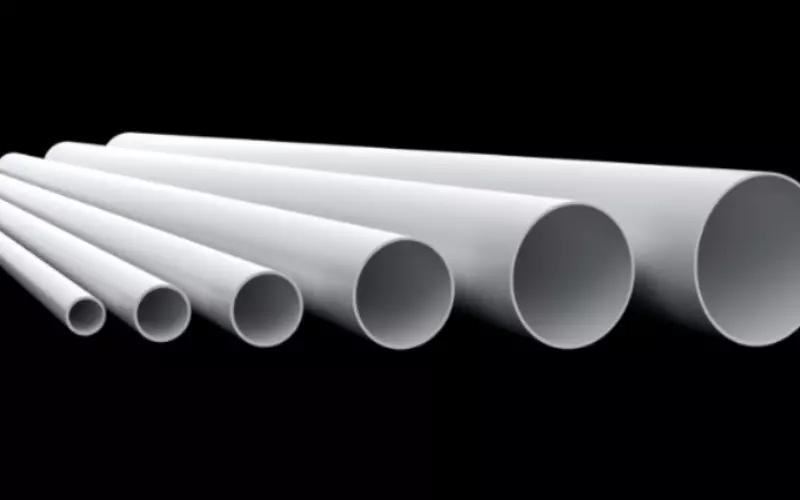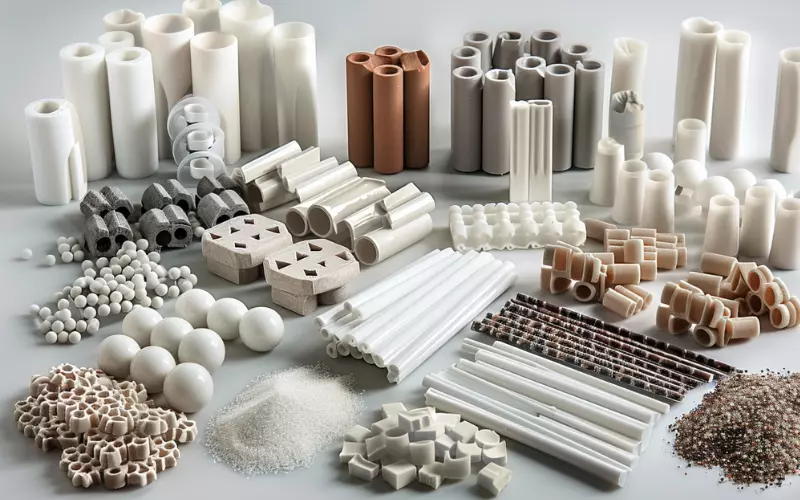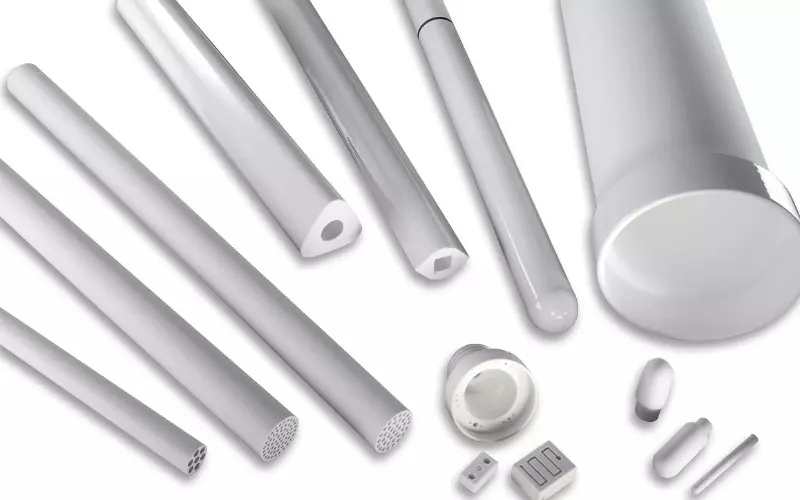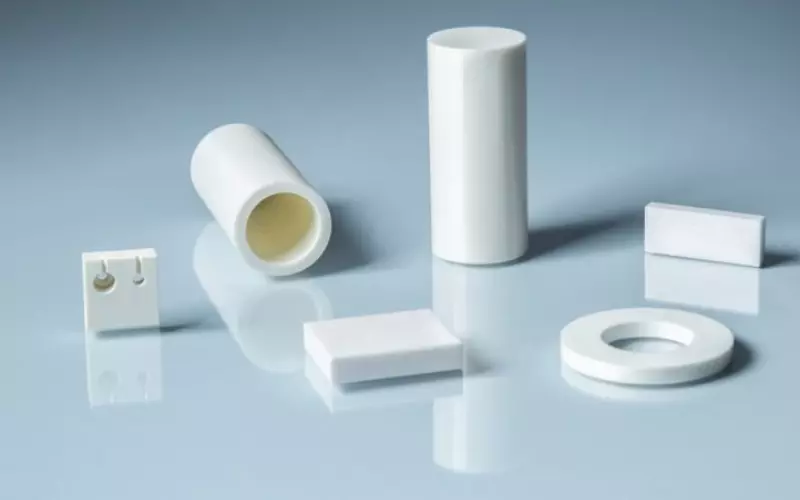Введение
Are you looking for a reliable ceramic tube manufacturer? Picking the right partner can really make a difference in maintaining quality and keeping your production on track. In this guide, we’ll discuss process insights, compare suppliers, and share tips for requesting quotes. Ready to make a smart choice? Let’s get started.
Understanding Ceramic Tube Manufacturing Process
Making top-notch ceramic tubes is a detailed process for manufacturers. These tubes find their place in different sectors like аэрокосмическая промышленность, medical devices, and электроника. Choosing suppliers with solid quality control is crucial in the ceramic manufacture process. This make sure the tubes can handle the required temperature, pressure, and last a long time.
I once visited a factory where I observed how every process, including mixing and firing, was tightly controlled. Also, the number of defects dropped by almost 20%. Such an experience made me realize that I need to know the ceramic tube manufacturing process before choosing a supplier.

Raw Materials And Composition
Most industrial ceramic tubes use alumina (Al₂O₃, 85–99.8% purity), zirconia (ZrO₂, up to 95% purity), or porcelain. High-purity alumina has good thermal stability and strength, managing temperatures that can exceed 1500 °C. Zirconia provides exceptional toughness and thermal shock resistance.
That’s why it is used in demanding applications where it is usually capable of working at temperatures up to 2000 °C.
Porcelain is used in places where electrical insulation is required. Strength, wear resistance, and heat tolerance are strongly dependent on material composition. Therefore, you should always request purity specifications.
Forming And Shaping Methods
The extrusion, slip casting, or dry pressing are used to make ceramic tubes. Экструзия produces long, continuous tubes that have uniform walls. Slip casting is more time-consuming and fits complicated forms. Pressing is cost-effective for high-volume runs.
Confirm the forming technique upfront because it affects dimensions, tolerance, and surface smoothness. This action is directly connected to the ceramic manufacture process, where the final quality is determined by forming precision.
Firing And Finishing Steps
Tubes are sintered at very high temperatures, usually above 1600 °C, to attain complete density and strength. Once the firing has been done, precision grinding and polishing bring them to the actual size with surface roughness as low as Ra 0.2 µm for critical applications..
Final inspection ensures that the dimensions and surface finish meet the standards of a specific industrial ceramic tube, and no defective ones before shipping.
I once worked with a batch in which no grinding was done. The ends of the tubes were rough, such that seals were destroyed in the assembly process. So, ask your supplier about post-firing finishing steps to avoid damage during your own installation.
Key Qualities To Look For In A Ceramic Tube Manufacturer
A good ceramic tube manufacturer will be the one that produces high quality consistently, has clear communication, and can stick to the agreed timelines. These traits help keep your project on track and within budget.

Quality Certifications And Standards
-
Look for ISO 9001 certification, which means that the business has strict quality systems.
-
Ensure they are in line with the ASTM standards of testing ceramics. For example, alumina typically has dielectric strength in the range of 9 to 15 kV/mm (equivalent to 900 to 1500 kV/cm), and volume resistivity 10¹³ ohm-cm at 25 °C, which is safe to use with electricity.
-
Alumina of such high grade is 92 percent or higher to allow heat to reach 1,650 °C with minimal shape change, important in high temperature operations.
Production Capacity And Lead Times
-
A best ceramic tube manufacturer should possess sufficient kilns, furnaces, and machines to process bulk orders without delays.
-
Request their small or large order lead times. Production of complex parts may require a few weeks to a few months. Hence, being aware of this at the start of the process keeps your schedule safe.
-
Some suppliers go even further by tracking the data of each batch they make so that you can see whether anything causes a delay.
One of the clients informed me that their supplier missed deadlines twice because of overbooked kilns. After that, they switched to a larger facility and were able to keep time. So, selecting a ceramic tube manufacturer that has sufficient equipment to work on your size order is essential.
Material Range And Customization Options
-
Check out suppliers that have materials such as alumina, zirconia, zirconia-toughened alumina (ZTA), and porcelain.
-
To compare, the density of zirconia is approximately 5.6 g/cm³ and the flexural strength of this material is as great as 1,150 MPa, which is why it is very tough. ZTA is a little bit lighter and yet powerful, and the flexural strength is approximately 480 to 600 MPa
-
Select a ceramic tube manufacturer that is capable of producing custom sizes, wall thicknesses, and tight tolerances.
-
Providing any in-house finishing, such as grinding or polishing, would save you time and money on secondary processing.
Working With Porcelain Tube Suppliers
Porcelain tubes suppliers are an effective solution in cases when you require high-quality electrical insulation and medium heat conductivity. They are applied in power systems, kilns, and other medium-temperature arrangements. When you have the right supplier, then your tubes will work and last.

Key Things To Look For
-
Correct Dimensions: Make sure that the inner and outer diameters, wall thickness, and lengths are correct. Such a tiny mistake in size may lead to fitting issues. Request sample tubes to be measured before confirming a large order.
-
Smooth and Even Glaze: Finished surface prevents premature cracks and water uptake. Check for any tiny holes or rough spots.
-
Heat Performance: Good porcelain is fired at 1,200–1,400 °C, and this provides it with strength and stability. It is able to withstand rapid temperature changes.
-
Inspection and Testing Reports: Porcelain tubes suppliers should provide data on mechanical strength and dimensions. Do a quick quality check when the shipment arrives.
-
Better Pricing for Bulk Orders: A discount may be negotiated when you buy in high quantities or intend to buy regularly.
-
Pre-Shipment Inspection: A good supplier will check goods before shipment and will make sure that goods are well-packed to prevent damage during transportation.
Industrial Ceramic Tube Applications
Industrial ceramic tubes are popular due to the fact that they are more suitable for handling heat, electricity, and even chemicals compared to most metals. Industries use them in the following ways:

Heat and High-Temperature Applications
-
Furnaces and Kilns: Alumina tubes can be heated above 1,600 °C without losing shape.
-
Heating Systems: Radiant tubes made of silicon carbide are able to operate to 1,380 °C and can withstand thermal shock.
-
Sensor Protection: Ceramic tubes protect Sensors in furnaces and kilns, which ensures they are not contaminated.
Электроизоляция
-
Power Plants and Heating Systems: Porcelain tubes offer a high level of insulation, with 4-10 kV per mm.
-
High-Purity Alumina Tubes: Provide even better insulation (up to 15–20 kV per mm) for essential equipment.
Chemical and Corrosive Environments
-
Chemical Processing Lines: Ceramic tubes are resistant to acids and alkalis, so they would be suitable for transporting corrosive liquids.
-
Abrasion Resistance: High-density керамика are long-lasting in systems where the abrasive particles would quickly wear out metal pipes.
How To Request And Evaluate Quotes
Requesting and comparing quotes properly helps you save money and avoid production delays. Here’s a step-by-step method:
-
Prepare a Clear RFQ: Make sure to list the type of material, how much you need, dimensions, and any specific tolerances. An elaborate RFQ saves time and gets you the right prices.
-
Ask for Delivery Timelines: Confirm how quickly they can deliver your order. Trustworthy suppliers provide realistic lead times on samples, as well as bulk orders.
-
Request Samples First: A sample can also be used to verify quality, finish, and dimensional accuracy of the product before making a full order commitment.
-
Discuss Payment Terms: Inquire regarding advance payments, credit options, or discounts for larger orders. Flexible terms would help you in enhancing your cash flow.
-
Compare Multiple Suppliers: Compare quotes of at least three porcelain tubes suppliers or manufacturers. Do not only compare price, but also lead times, quality guarantees, and technical support.
-
Verify Certifications and Reports: Check Test reports and ISO 9001 certificates. This ensures the supplier follows proper quality systems and standards.
Why Choose GORGEOUS For Ceramic Tubes
Working with GORGEOUS would give you reliability, accuracy, and assistance with the ceramic tube manufacturing process. Here’s why businesses trust us:
-
Конкурентные цены: We provide affordable solutions without sacrificing quality making your projects within budget.
-
Strict Quality Checks: Before shipping, every ceramic tube is checked regarding its size, surface finishing and strength.
-
Fast Lead Times: Our efficient production system has made it possible to get orders on time even on large orders.
-
Экспертиза материалов: We advise you on the proper choice of material, either керамика из оксида алюминия, цирконий, or porcelain, depending on their application.
-
Customization Support: Get tubes in custom sizes and tolerances tailored to your particular project requirements.
-
Reliable Partnership: Our team stays connected at each order phase to communicate efficiently and maintain quality.
Заключение
Now that you have the idea of what to consider in a ceramic tube manufacturer, begin your RFQ process now. GORGEOUS has an experience of many years in providing ceramic tubes of very high precision.
Visit our product catalog, or request a quote to receive professional advice and custom-made solutions to your project.
Часто задаваемые вопросы
What materials are used for ceramic tubes?
Depending on the strength and temperature needs, you get alumina, zirconia, and porcelain.
How do you verify a manufacturer’s quality?
Check ISO certificates and request material test reports before large orders.
Are porcelain tubes cheaper than alumina tubes?
Yes, it is less expensive but it has lower temperature resistance
How long do industrial ceramic tubes last?
With proper working conditions and maintenance, you can expect years of service.
What is the usual lead time?
Lead time is normally 2-6 weeks, depending on the production schedule.